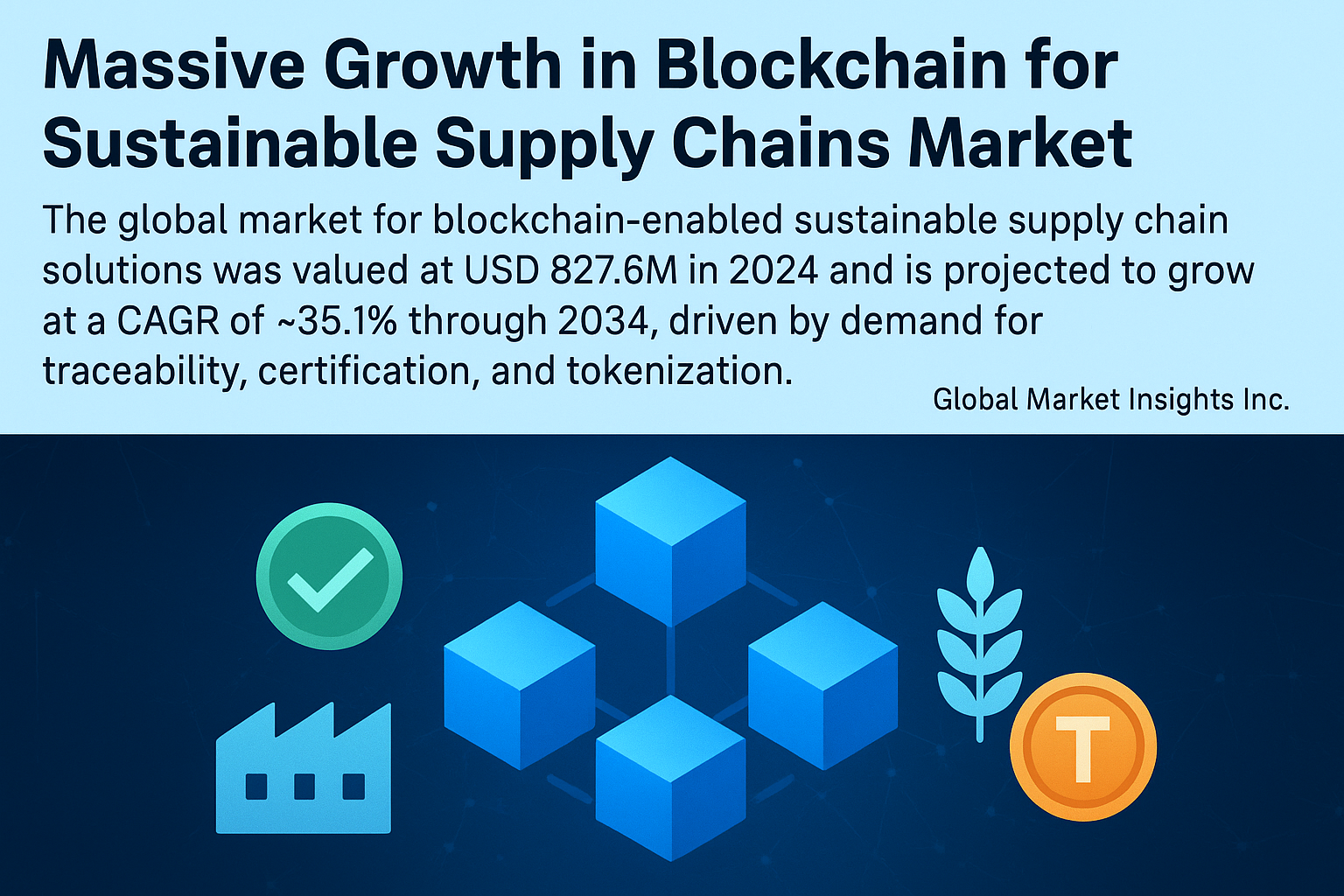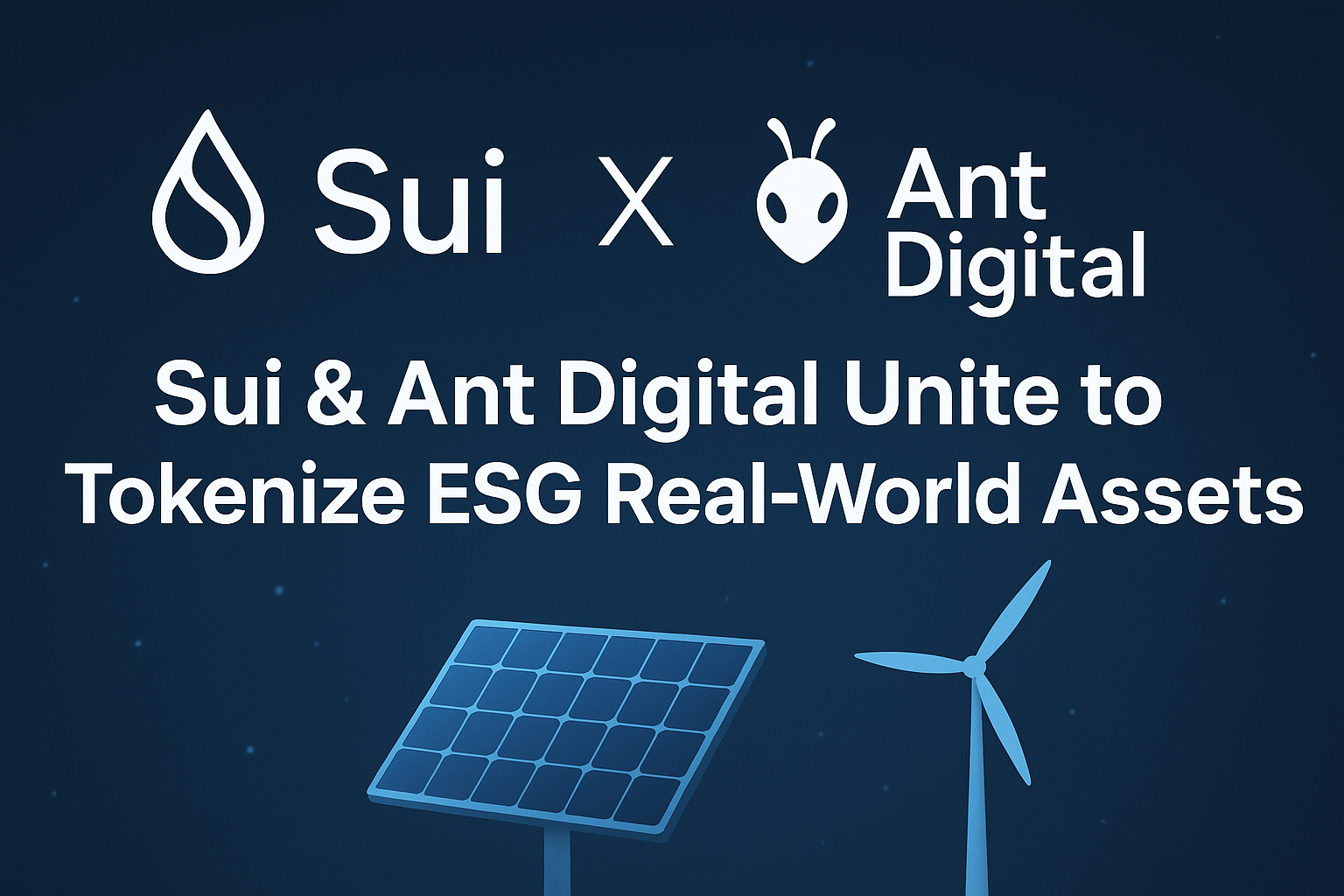In recent years, sustainability has become a defining issue for businesses across every industry. As global supply chains expand in scale and complexity, so too does the demand for transparency, accountability, and trust. Enter blockchain: a technology once seen primarily through the lens of cryptocurrencies, but now rapidly becoming a transformative force in sustainable supply chain management.
According to Global Market Insights Inc., the global market for blockchain-enabled sustainable supply chain solutions was valued at USD 827.6 million in 2024. Even more striking, it is projected to grow at an impressive compound annual growth rate (CAGR) of ~35.1% through 2034. This extraordinary growth reflects a broader shift in how companies and governments approach sustainability, compliance, and consumer trust.
Why Blockchain in Supply Chains?
Traditional supply chains often struggle with fragmented data, manual reporting, and the risk of fraud or error. For industries that must adhere to strict sustainability standards—such as food, fashion, energy, and manufacturing—this lack of transparency creates major challenges. Blockchain offers a solution by providing:
-
Traceability: Every step in the supply chain can be recorded in an immutable ledger. From raw material sourcing to final product delivery, stakeholders can verify authenticity and sustainability claims.
-
Certification: Blockchain ensures that sustainability certificates, carbon credits, and compliance documents are secure and tamper-proof.
-
Tokenization: Digital tokens allow assets—whether raw materials, finished goods, or carbon credits—to be tracked, traded, and validated in a transparent ecosystem.
Key Drivers of Growth
-
Consumer Demand for Transparency
Today’s consumers want to know not just what they are buying, but also how it was made. Ethical sourcing, fair labor practices, and eco-friendly manufacturing are increasingly non-negotiable. Blockchain provides the backbone for brands to prove these commitments. -
Corporate Sustainability Commitments
Global corporations are under pressure to meet net-zero and ESG (Environmental, Social, Governance) goals. Blockchain makes compliance reporting easier, faster, and more credible. -
Regulatory Pressure
Governments worldwide are rolling out stricter sustainability regulations. Whether it’s the EU’s Corporate Sustainability Reporting Directive (CSRD) or carbon border adjustment mechanisms, blockchain-powered solutions can streamline compliance. -
Cost Efficiency and Risk Reduction
Beyond compliance, blockchain reduces fraud, minimizes supply chain disruptions, and ensures more efficient collaboration across multiple stakeholders.
Industry Applications
-
Food & Agriculture: Ensuring that products are ethically sourced and free of deforestation, child labor, or unsustainable practices.
-
Fashion & Textiles: Verifying supply chain integrity to combat “greenwashing” and guarantee sustainable materials.
-
Energy & Mining: Tracking renewable energy certificates, carbon credits, and responsible mining initiatives.
-
Pharmaceuticals: Strengthening drug authenticity, reducing counterfeits, and safeguarding ethical distribution.
Challenges Ahead
While the outlook is highly promising, scaling blockchain in supply chains faces a few hurdles:
-
Integration Costs: Adoption requires significant investment in digital infrastructure.
-
Interoperability: Ensuring different blockchain systems can communicate across industries and borders.
-
Scalability: As transaction volumes rise, maintaining efficiency and security at scale remains a challenge.
Nonetheless, these challenges are being actively addressed by innovators and consortia working on global blockchain standards.
By 2034, blockchain will likely be a core component of sustainable business practices. What was once a niche technology tied to cryptocurrencies is now evolving into a foundational tool for global trade, trust, and accountability.
As the market races past USD 827.6 million in 2024 toward multi-billion-dollar levels in the next decade, businesses that adopt blockchain-enabled sustainability solutions early will not only stay ahead of regulations but also earn consumer trust and competitive advantage.
In short: Blockchain isn’t just powering digital currencies anymore—it’s helping power a more sustainable, transparent, and responsible global economy.




